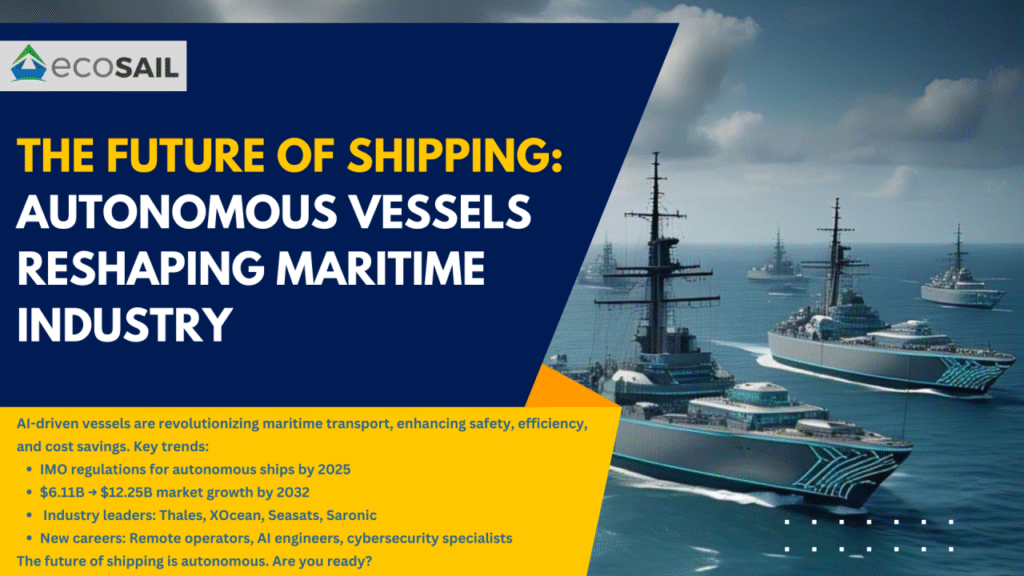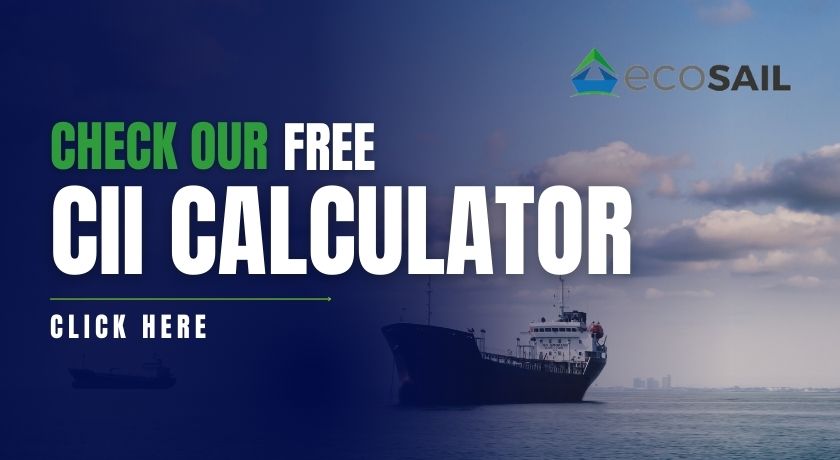The Future of Shipping: Autonomous and Remotely Operated Vessels Reshaping Maritime Industry

Introduction
The maritime industry is experiencing a significant transformation with the emergence of autonomous and remotely operated ships. These vessels, powered by advanced artificial intelligence, automation systems, and remote-control technologies, are set to revolutionize global shipping. By minimizing human intervention, autonomous shipping enhances safety, boosts efficiency, and reduces operational costs. Leading maritime organizations and tech firms are pioneering research and development to integrate these vessels into commercial and defense sectors, marking a pivotal shift in global trade and logistics.
Understanding Autonomous Shipping
Autonomous shipping involves vessels that navigate and perform key functions with minimal or no human control. Advances in artificial intelligence, smart sensors, and connectivity solutions are driving this transition. The International Maritime Organization (IMO) categorizes maritime autonomy into four levels:
- Degree 1: Automated processes with onboard crew monitoring and intervention.
- Degree 2: Remote-controlled ships with onboard crew for safety backup.
- Degree 3: Fully remotely controlled vessels with no onboard crew.
- Degree 4: Fully autonomous ships making independent decisions.
While fully autonomous ships (Degree 4) remain in experimental stages, most trials and deployments currently operate at Degree 2, ensuring human oversight. Challenges such as regulatory adaptation, cybersecurity, and seamless communication must be addressed before full autonomy becomes widespread.
Regulatory Framework and Classification Societies
Regulatory bodies and classification societies play a crucial role in certifying autonomous ships to ensure compliance with global maritime laws. The IMO is developing a non-mandatory goal-based Maritime Autonomous Surface Ships (MASS) Code, scheduled to take effect in 2025. Key classification societies include:
- DNV (Det Norske Veritas): Introduced the Autonomous and Remotely Operated Ships (AROS) classification in December 2024 to assess automation in navigation, engineering, and safety.
- ClassNK (Nippon Kaiji Kyokai): Established guidelines for the safe design and operation of automated systems in maritime vessels.
- Lloyd’s Register: Collaborating with global stakeholders to develop classification frameworks for integrating autonomous technologies into shipping operations.
These evolving regulations will be essential for the safe and widespread adoption of autonomous shipping.
Key Industry Players and Advancements
Several companies and research institutions are at the forefront of autonomous vessel technology, investing in AI, automation, and connectivity solutions. Notable players include:
- Thales: Delivered the world’s first end-to-end autonomous maritime mine-hunting system to the Royal Navy, marking a major advancement in naval autonomy.
- XOcean: Specializes in uncrewed surface vessels (USVs) for hydrographic surveys and environmental data collection. The company has expanded its fleet significantly, backed by strong funding rounds.
- Seasats: Produces solar-powered autonomous boats, including the Lightfish, used for environmental research and surveillance.
- Saronic: Develops intelligent autonomous surface vessels for defense and security, with its Corsair model designed to enhance maritime capabilities.
With increased investment and technological advancements, the maritime industry is moving towards large-scale deployment of autonomous and remotely operated ships.
Economic Growth and Market Potential
The autonomous ships market is projected to expand significantly. Market analysis indicates that the sector, valued at approximately $5.3 billion in 2023, is expected to reach $11.4 billion by 2032, driven by technological advancements, operational efficiency demands, and sustainability initiatives. The economic benefits include:
- Lower Operational Costs: Reduced crew requirements lead to savings on wages, accommodations, and onboard provisions.
- Enhanced Safety: AI-driven systems mitigate human errors, which contribute to a significant portion of maritime accidents.
- Continuous Operations: Autonomous ships can operate 24/7, optimizing fuel efficiency and cargo transportation.
- Sustainability: AI-optimized navigation improves fuel consumption and reduces carbon emissions, promoting eco-friendly shipping solutions.
Job Market and Workforce Evolution
The rise of autonomous shipping will redefine traditional seafaring roles, leading to shifts in employment patterns. While crew sizes on autonomous vessels will decrease, new roles and career opportunities will emerge in areas such as:
- Remote Vessel Operators: Monitoring and managing autonomous ships from onshore control centers.
- AI and Automation Engineers: Designing, maintaining, and upgrading autonomous navigation systems.
- Cybersecurity Specialists: Protecting ships from digital threats and ensuring secure communications.
- Maritime Data Analysts: Processing AI-generated insights to optimize shipping operations.
- Regulatory Compliance Experts: Ensuring adherence to evolving maritime laws and vessel certifications.
Training and reskilling initiatives will be essential to prepare maritime professionals for this evolving landscape. Digital literacy and automation expertise will be crucial for career sustainability in the autonomous shipping era.
Conclusion
Autonomous and remotely operated ships are shaping the future of maritime transport, offering unparalleled efficiency, safety, and economic advantages. As regulations evolve and technology advances, autonomous shipping will become a core component of global logistics. While traditional seafaring roles may diminish, new job opportunities in AI, cybersecurity, and remote vessel management will emerge.
As the maritime sector embraces digital transformation, autonomous shipping is poised to become a cornerstone of global trade and sustainable logistics.




